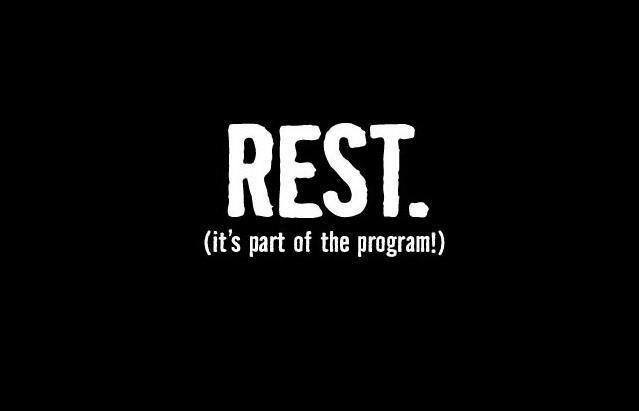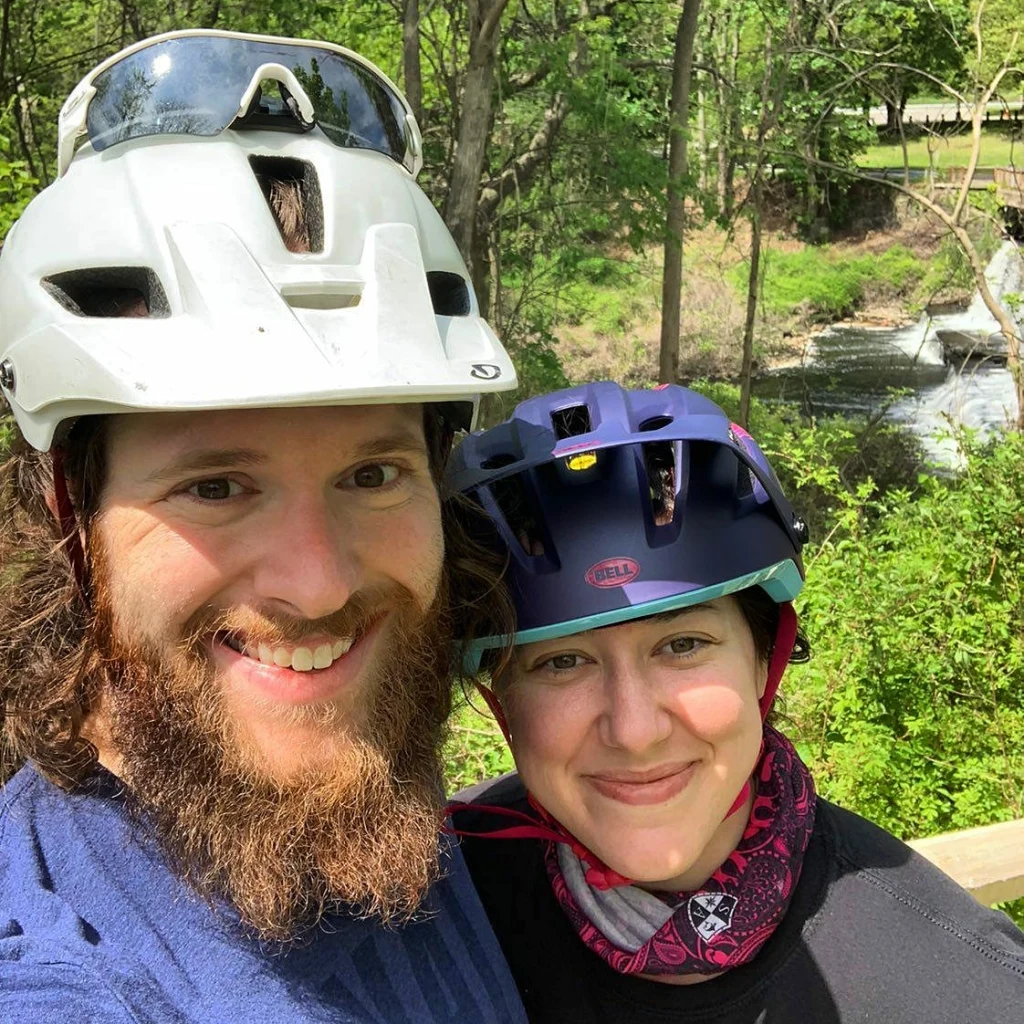Several months ago a friend and former co-worker asked me, “Hey, have you heard about that Life Max event?” Jorell heard of it from his peers in the Equinox grapevine, and I had no clue what he was talking about.
As it turns out, I was lucky to get the heads up. The “Keys to Life Maximization” event was a collaborative effort between Equinox Sports Clubs, Perform Better, and the American College for Advancement in Medicine (ACAM) held at the TriBeCa Rooftop 360 Room. The purpose of the event was to bring together both health care practitioners and fitness professionals to foster a multidisciplinary approach to health and wellness. The unifying concept was to not simply avoid illness or disease state, but to identify the Keys to Life Maximization.
The presenters were leading minds throughout the field discussing their areas of expertise. They were:
- Dr. Jeffrey Morrison – Environmental Influences
- Dr. John Berardi – Nutrition
- Dr. Dana Cohen – Hormonal Health
- Dr. Charlie Weingroff – Prehab Solutions
- Michol Dalcourt – Movement /Exercise
- Dr. Perry Nickelston – Recovery
- Dr. Paul Spector – Risk Stratification
The event, which I believe was captained by Geralyn Coopersmith of Equinox, functioned to foster connection between allied health professionals and fitness professionals to best approach and address client/patient health issues. While we have major breakthroughs in medicine and rapid learning in exercise physiology, we’ve yet to combine this knowledge with the appropriate psychology and education to enhance wellness at a national level. The rate and cost of lifestyle-related disease is a prime indicator of this.
We are all on a personal-care continuum, but it’s infrequently that there is true multi-discipline collaboration. We simply don’t know who or where to go as the experts in related fields, and since few events bridge these gaps, are seldom seen together. An impressive part of this event was dedicated to creating those connections, and there were multiple breaks throughout the day, including a networking breakfast and networking brunch.
I attended the event with Mark Fisher, who is as much a ridiculous human as he is serious about fitness. We’re super nerdy, and we sat in the front row the whole time. Here’s some more information about how the event came to fruition:
Mark and I arrived at the 360˚ Room just after 8am, which is exactly when he became a bad influence on me. I believe I was 3 cups in before we first began; more on that later. Let’s get into some reviews on each presenter, and how you can follow their lead.
Environmental Health: Dr. Jeffrey Morrison
Dr. Morrison, Dr. Morrison is a family practice physician and integrative medicine specialist who has practiced medicine in NYC for over 10 years. He largely discussed the need for medical care as part of the overall training process, especially in regards to evaluating environmental health impacts. Dr. Morrison discussed 3 principles to recharge:
- Replace: replace unhealthy food choices with better quality food options
- Remove: toxins from body
- Replenish: missing nutrients from the body by using blood profiles and the like to see where one is deficient.
The medical care comes into play for Remove and Replenish specifically. Making quality food choices isn’t as much about education as much as it’s about behavior (as Berardi talks about later), but Dr. Morrison touched on the significance of the health care professional as part of a team that can regular nutritional deficits and make medical nutritional recommendations.
All of this is dependent on his second acronym, ACT, which stands for Accountability, Consistency, and Teamwork. Dr. Morrison noted case studies with Equinox Tier 4 trainers that he has interacted with to demonstrate the success of the collaborative effort. Once the network is built, it should lead to success for everyone, and most importantly the client/patient.
John Berardi, PhD: Nutrition
John Berardi is a fan-favorite for many who have seen his work, and I’ve seen him present several times at Perform Better Summits. He is the founder of Precision Nutrition, which runs one of the biggest nutrition coaching businesses in the world. While it may be surprising, Berardi seldom talks about macronutrient ratios, nutritional deficiencies, or nutrient timing. Instead, he reminded us that we have been asking the wrong questions all along.
Berardi has an endearing way of poking fun at the culture of the fitness industry while enlightening us to a better way; focusing on psychology over physiology. He noted the increasing number of studies comparing diets with varying macronutrient profiles that have shown very little difference in results when it comes to either weight loss or metabolic risk factors.
High-fat, high-carbs, Paleo, Atkins, Schmackery’s, Chipotle, Whatever-The-Fuck-You-Want.
The biggest factor in any of these studies is adherence to the protocol. If you follow it, and if it follows science, it will work. Adhering to a singular nutritional “religion” clouds judgement and plagues us from making appropriate decisions. According to Berardi, good practitioners are “nutritionally agnostic” and adapt to the needs of their clients/patients.
The biggest mistake we make is not accounting for the behavioral skill set required to make appropriate decisions. We practice everything with a skill-based approach, and when it comes to nutrition, we say, “This is how you should eat; now go eat.” It’s an approach that sets us up for failure, both as consumers and producers. Let’s focus on skill development rather than nutrition education.
Dana Cohen, MD: Hormonal Health
Dr. Cohen is a private practice physician based in NYC who is board certified in Internal Medicine. Her presentation stressed the need for hormonal balance in our over-stimulated world. We’re a culture tied to devices that bombard us with information, we have stressful jobs, we eat incomplete foods. As remarkably responsive as our bodies are, we can knock them out of whack, and it’s important to find balance. In some cases, hormone therapy is the last resort, but Dr. Horton specifically noted using bioidentical hormones instead of synthetic ones.
Trainers are frequently the first people to notice systems and educating fitness professionals on the topic is important. The world’s best training program is useless when prescribed to a person who it’s not appropriate for, or when their body isn’t responding optimally. Dr. Cohen noted that there are major links between gut health, autoimmune function, and healthy hormone levels, and that appropriate nutrition is a major part of the equation.
She discussed a variety of botanicals to be used in the care of patients/clients, and helped manage our own sympathetic-dominant systems with a calm, calm, very calm, OMG-I-Need-Coffee presentation. Perfect, because at this point I was on my 4th cup of coffee. This is probably what she was talking about in regards to nutrition…
Charlie Weingroff, DPT, ATC, CSCS: Prehab Solutions
Charlie Weingroff has blown up in the last several years, and is somewhat of a ‘regular’ for me to learn from. As always, he was entertaining, passionate, and absolutely serious about training. He explained that most of the time we’re looking at movement fitness, or biological power, instead of movement health by establishing a minimum standard of movement competency. While we focus on sets, reps, range of motion, and speed, we’re masking movement dysfunction that is an indicator of injury risk.
Charlie is part of the FMS Expansion Team, and while he referred to the FMS, what you use isn’t as important as that you are actually using something. An system that takes into note foundational movement patterns can give us the best appraisal of movement, and is simply aligning your map and compass as you continue your Journey.
An appropriate “prehab” program starts with screening, testing, and assessing, which allows you to best program for your client, or identify when they shold be referred to an allied health care professional. We are all part of the same team, with services that overlap, allowing the network to best provide care to a patient or client.
Michol Dalcourt: Movement/Exercise:
Michol is the Director of the Institute of Motion, on the adjunct faculty at the University of San Francisco, and the inventor of the ViPR fitness tool. I first saw him present at Perform Better several years ago, and love what he talks about. His talk focused on 4 keys to life maximization: awareness, coaching, feedback/tracking and community. Michol also made us practice what he was preaching, as we stood up and moved around several times throughout his presentation. It’s not a surprise, but sitting is killing you.

Awareness is the idea that people should be educated as to the health benefits of movement and exercise. This is the key that’s least surprising to anyone in the exercise world, what we need to do the least of, but what we spend the most time doing. Education is important, but most everyone knows that exercise is good for them.
Coaching adds value to that awareness, as a good coach, be they a trainer or medical professional, can strike an appropriate balance of motivation and accountability while coaching appropriate movement. Coaching is the difference between the drill-sergeant intimidating persona and the empowering, uplifting instruction to reach your goals.
Feedback and Tracking is essential to success to truly monitor progress. This starts with taking initial records when first beginning, but also being able to track changes in those initial measurements, through a variety of systems. Our technology-based culture uses multiple devices and apps, and the concept of “quantified self” allows us to track how we’re eating, moving, feeling, and recovering so that we can provide statistics and see the best results possible. Health & Fitness apps are becoming increasingly popular, and they make the job of the fitness professional easier while improving the results of the client. Everybody wins.
Establishing Community is an essential part of success, be they in-person or online. Support groups in gyms, on Facebook, or on other sites (such as Fitocracy) can be used to connect with like minded individuals and foster growth and support to reach communal goals. This is a vastly overlooked part of the exercise world that seems to be missed by us when we have one-on-one training, or plug in our headphones and slug away while ignoring our neighbors. (Note: It’s perfectly okay when your neighbor is curling in the squat rack.)
Perry Nickelston, DC, NKT, SFMA: Recovery
Dr. Nickleston, the proprietor of the “Stop Chasing Pain” brand, is a chiropractic physician who focuses on pain reduction, corrective exercise, and performance enhancement. As a long-time listener of his podcast, I was excited to hear his talk. He discussed the importance of the “Powerhouse 5” for recovery, which include proper breathing, water, sleep, fascial integrity, and brain power.
His talk on recovery focused on what he called the Powerhouse 5. These are what he believes to be the cornerstone of good recovery: proper breathing, water, sleep, fascial integrity and brainpower.
Breathing is the current starlet of the exercise science world, and for good reason. Perry recommended 5 minutes daily of diaphragmatic breathing to reset the breath, as there are implications for posture, pain, movement, and metabolism. He recommended a minimum of a quart per 100 lbs. of lean body mass, and was quick to remind us that being overweight/stressed means that you may need to double or triple the amount. We’re all stressed, aren’t we?
Breathing and hydration have a big impact on fascial health, and Perry recommend regular self-massage to care for fascia, as well as regular stretching to maintain integrity. This can be reinforced by developmental patterns, which he referred to as brain power. These include, rolling, rocking, crawling, and cross crawling, which are like brain candy, helping to restore reflexive movement and develop stability. When appropriate they can also be strength training.
When those four are taken care of, sleep takes care of itself. A well treated and well used body will naturally want to sleep, although there are cases (which Drs Morrison and Cohen addressed) when other measures are necessary.
Paul Spector, MD: Health Risk Stratification
After sitting for quite a few hours, and being reminded several times how deleterious sitting is to the body, Mark and I were considering leaving early. Let’s be honest; “Health Risk Stratification” doesn’t sound very sexy, does it?
I’m glad we stayed.
Dr. Spector earned his MD from Columbia University where he trained in ophthalmology and psychiatry. After 15 years in academic and private practice, he founded Pantheon Medicine. His presentation was quite similar to the current reading list of members of the MFF Team, so they popped even more. He discussed health risk stratification, and the major changes in health and wellness risks since the turn of the (last) century.
In 1900, diseases were infectious, caused by pathogens, and medicine was the primary intervention. As we master Medicine (and food processing), we face a number of degenerative diseases that are caused by lifestyle factors, and while we can treat them with medicine, the cure is behavior modification. Dr. Spector discussed the importance of education, but not necessarily about the risks associated with lifestyle related diseases. Why not? Because we know them, and it doesn’t matter.
Education should focus how risk is perceived in our newfound health environment, and on the behavioral changes that can help us mitigate these risks. Past generations were to avoid wild animals or outbreaks of the plague, while the animal hunting us is Type II Diabetes. Death by disease is now 18 times more likely to kill us than death by accident but the public perception is that they are equally likely.
Interventions will succeed or fail based on how they alter our perceptions, and how we alter lifestyle choices accordingly. We over estimate the likelihood of events outside of our control, but we underestimate the likelihood of events that we can control. In many ways, we must develop strategies that focus on delayed gratification so that we can address our long-term needs, not indulge our short-term desires.
That’s a Wrap
On the way back to MFF, Mark and I discussed several of the concepts covered by the presenters, and how they applied to the overall goal of Life Maximization. It was an extremely well run event with world-class presenters and the brightest of attendees. The ideas discussed will continue to permeate the health and fitness communities, and the burden of success is on us as professionals to integrate with our colleagues.
It’s equally as important for the consumer to take the power into their own hands, and collaborate with their medical and movement professionals to ensure that they’re receiving the best care possible. We rarely ask for adequate, but we have the tendency to accept it. This isn’t about adequate.
This is about having the keys to maximize your fitness, health, and wellness, to lead the best life possible. Equinox has branded the phrase, “It’s Not Fitness, It’s Life”, and they’re absolutely correct.











Leave a comment